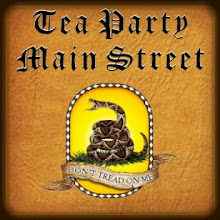Quote from Hat In Ring
NPR wrote a story on a "PEW" research study that shows the parents of immigrants that vote democrat produce children that are even more democrat.
The establishment republicans & democrats have been on the same page in back rooms in
recent years. You may see differences in public but when you go behind closed doors there's a lot of allegiance & conspiracy between them to screw over U.S. citizens with hoards of illegal aliens. "THIS ARTICLE BY NPR EXPLAINS EXACTLY WHY THE DEMOCRATS AND ESTABLISHMENT RINO REPUBLICAN HAVE BEEN ACTING THE WAY THEY ARE ACTING". Both have absolutely no plans to shut the border down & stop the massive immigration & are catering to it. We do need Donald Trump to "STOP" this! We need the best of our best & "NOT" the rest. Palin & Cruz are the rest!
NPR wrote a story on a "PEW" research study that shows the parents of immigrants that vote democrat produce children that are even more democrat.
The establishment republicans & democrats have been on the same page in back rooms in
recent years. You may see differences in public but when you go behind closed doors there's a lot of allegiance & conspiracy between them to screw over U.S. citizens with hoards of illegal aliens. "THIS ARTICLE BY NPR EXPLAINS EXACTLY WHY THE DEMOCRATS AND ESTABLISHMENT RINO REPUBLICAN HAVE BEEN ACTING THE WAY THEY ARE ACTING". Both have absolutely no plans to shut the border down & stop the massive immigration & are catering to it. We do need Donald Trump to "STOP" this! We need the best of our best & "NOT" the rest. Palin & Cruz are the rest!
Children Of Latino Immigrants Skew Even More Democratic Than Parents, Study Says
NPR Article February 07, 2013 4:34 PM ET
Immigrants from Asia and Latin America are more conservative than their U.S.-born children, according to a study released Thursday by the Pew Research Center.
And while most immigrants from Asia and Latin America identify with the Democratic Party, the report found that Hispanic members of the second generation — those born in the United States with at least one parent born outside of the country — were even more likely to identify as Democrats than their parents.
That Democratic-leaning identification grew from 63 percent among first-generation Hispanics to 71 percent among their children.
Second-generation Asian-Americans showed no change in party identification, but still leaned overwhelmingly Democratic, at 52 percent compared with 32 percent Republican.
Among the general public, 49 percent of Americans identify as Democratic, compared with 39 percent who identify as Republican, said Pew, whose report was based on an analysis of Census Bureau data.
The study found a big gap between immigrant parents and their children on social issues like abortion and gay rights. About half of all Latino immigrants feel that gays should be accepted by society, but among their children, that acceptance jumps to about two-thirds. Among Asians, that spike is even more pronounced: 46 percent of the first generation think homosexuality should be accepted, while 78 percent of the second generation believe that it should be.
On the issue of abortion, the study found that 33 percent of first-generation Latinos thought it should be legal compared with 55 percent of the second generation who were in favor of abortion rights. While about half of first-generation Asians felt abortion should be legal, two-thirds of the second generation felt that way.
But this trend didn't necessarily hold true for views about the role of government. While Latinos were much more likely to prefer an activist government than Americans at large, there's a dip in support for bigger government between the immigrant generation (83 percent) and their American-born children (71 percent).
The same was true for Asian-Americans: About 6 in 10 first-generation immigrants supported bigger government, compared with just under half of their children.
"One of the things is that there's a correlation between vulnerable populations and big government," Pew's Paul Taylor said. "That may explain the very high levels of support for bigger government, particularly for first-generation Latinos."
The report comes as Congress and the White House consider how to overhaul the country's immigration system, and as Republicans try to reach out to Latino and Asian-Americans, who voted overwhelmingly for President Obama in last November's presidential election. Almost all of the growth in the nation's working-age population from now until 2050 will come from immigrants and their children, which means that winning voters from those demographics will be crucial to the parties' electoral successes.
The study also found that second-generation Latinos and Asian Americans were nearly twice as likely to see themselves as "typical Americans" compared with their parents. But majorities from both groups say they most often identify themselves as from the country of their ancestors.
"The metaphor that people used in the 20th century about immigrants and integration was ... America's a melting pot," Taylor said. "I think the better metaphor for the 21st century might be a mosaic" — that is, distinct parts of a larger whole.
"They do have a sense of being part of this country while also hanging onto their identities," he said.
NPR Story
NPR Article February 07, 2013 4:34 PM ET
Immigrants from Asia and Latin America are more conservative than their U.S.-born children, according to a study released Thursday by the Pew Research Center.
And while most immigrants from Asia and Latin America identify with the Democratic Party, the report found that Hispanic members of the second generation — those born in the United States with at least one parent born outside of the country — were even more likely to identify as Democrats than their parents.
That Democratic-leaning identification grew from 63 percent among first-generation Hispanics to 71 percent among their children.
Second-generation Asian-Americans showed no change in party identification, but still leaned overwhelmingly Democratic, at 52 percent compared with 32 percent Republican.
Among the general public, 49 percent of Americans identify as Democratic, compared with 39 percent who identify as Republican, said Pew, whose report was based on an analysis of Census Bureau data.
The study found a big gap between immigrant parents and their children on social issues like abortion and gay rights. About half of all Latino immigrants feel that gays should be accepted by society, but among their children, that acceptance jumps to about two-thirds. Among Asians, that spike is even more pronounced: 46 percent of the first generation think homosexuality should be accepted, while 78 percent of the second generation believe that it should be.
On the issue of abortion, the study found that 33 percent of first-generation Latinos thought it should be legal compared with 55 percent of the second generation who were in favor of abortion rights. While about half of first-generation Asians felt abortion should be legal, two-thirds of the second generation felt that way.
But this trend didn't necessarily hold true for views about the role of government. While Latinos were much more likely to prefer an activist government than Americans at large, there's a dip in support for bigger government between the immigrant generation (83 percent) and their American-born children (71 percent).
The same was true for Asian-Americans: About 6 in 10 first-generation immigrants supported bigger government, compared with just under half of their children.
"One of the things is that there's a correlation between vulnerable populations and big government," Pew's Paul Taylor said. "That may explain the very high levels of support for bigger government, particularly for first-generation Latinos."
The report comes as Congress and the White House consider how to overhaul the country's immigration system, and as Republicans try to reach out to Latino and Asian-Americans, who voted overwhelmingly for President Obama in last November's presidential election. Almost all of the growth in the nation's working-age population from now until 2050 will come from immigrants and their children, which means that winning voters from those demographics will be crucial to the parties' electoral successes.
The study also found that second-generation Latinos and Asian Americans were nearly twice as likely to see themselves as "typical Americans" compared with their parents. But majorities from both groups say they most often identify themselves as from the country of their ancestors.
"The metaphor that people used in the 20th century about immigrants and integration was ... America's a melting pot," Taylor said. "I think the better metaphor for the 21st century might be a mosaic" — that is, distinct parts of a larger whole.
"They do have a sense of being part of this country while also hanging onto their identities," he said.
NPR Story
Tea Party Main Street Home
















No comments:
Post a Comment